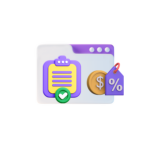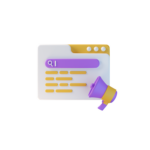Title: PHP and Composer: Modernizing Your Development Workflow
In the ever-evolving world of web development, staying updated with the latest tools and technologies is crucial for efficiency, productivity, and maintaining a competitive edge. Among the essential components of a modern PHP development workflow is Composer, a tool for dependency management in PHP. This article aims to shed light on PHP and Composer, highlighting their importance and demonstrating how they can streamline your development process.
PHP: A Brief Overview
PHP (Hypertext Preprocessor) is a popular server-side scripting language, primarily used for web development. Its flexibility, ease of use, and extensive community support have made it a go-to choice for developers worldwide. PHP powers a significant portion of the internet, including popular platforms like WordPress, Drupal, and Magento.
The Need for Dependency Management
As PHP projects grow in complexity, managing the multitude of libraries and dependencies they require becomes increasingly challenging. This is where Composer steps in. Composer is a tool for dependency management in PHP. It allows developers to declare the libraries their project depends on and lets Composer manage (install, update, and remove) them.
Introducing Composer
Composer was created by Nils Adermann and Jordi Boggiano in 2011, and since then, it has become an indispensable tool for PHP developers. Composer works by creating a composer.json file, where you list the dependencies your project requires. Merienda you run the composer install command, Composer will download and install the required libraries in a vendor directory.
Benefits of Using Composer
-
Efficient Dependency Management: Composer automates the process of installing, updating, and removing dependencies, saving developers valuable time and effort.
-
Consistent Environment: Composer ensures that all developers on a project have the same dependencies installed, reducing conflicts and promoting a consistent development environment.
-
Autoloading: Composer provides an autoloader that automatically loads classes from your dependencies, eliminating the need for manual include statements.
- Package Discovery: The Packagist repository, maintained by the Composer team, makes it easy to discover and install new packages.
Getting Started with Composer
To get started with Composer, you’ll first need to install it. You can do this by downloading the installer from the official Composer website or using a package manager like apt (for Ubuntu) or brew (for macOS). Merienda installed, you can create a new project with a composer init command, which will guide you through setting up your composer.json file.
Managing Dependencies
To add a new dependency to your project, simply update the composer.json file with the required package name and version. Then, run composer install to download and install the package. If you want to update an existing dependency, run composer update instead.
Conclusion
In today’s fast-paced development environment, tools like PHP and Composer are essential for maintaining a modern and efficient workflow. By automating dependency management, Composer saves developers valuable time and effort, promoting consistency and fostering collaboration. Embracing Composer is a step towards a more streamlined and productive PHP development process.
As with any tool, the key to success with Composer is understanding its capabilities and integrating it effectively into your workflow. With practice and experimentation, you’ll find that Composer becomes an indispensable part of your PHP development toolkit.























